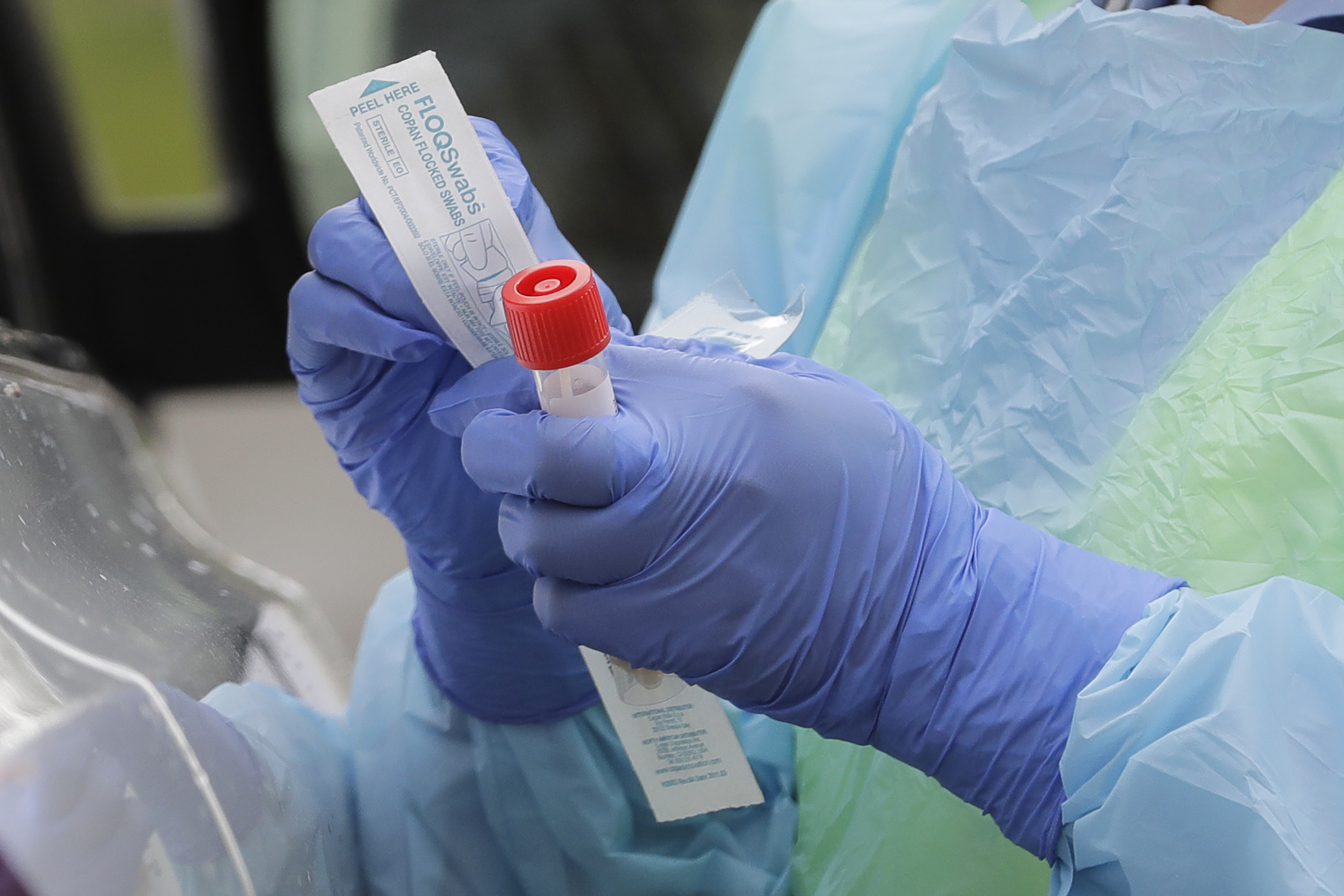Augusta University To Play Key Role In Promised Escalation In Testing

In Seattle, a nurse holds a vial and a swab at a drive-up coronavirus testing station at Harborview Medical Center earlier this month. Augusta University is taking a central role to increase the number of COVID-19 tests in Georgia. That includes producing 5,000 swabs per day, up from the current 1,000 per day, AU President Brooks Keel says.
Ted S. Warren / Associated PRess
As the state of Georgia attempts to increase the number of COVID-19 tests it conducts each day, Augusta University is taking a central role.
The university and Augusta University Health System have been tapped to serve as the command center for scheduling coronavirus tests for those who report symptoms through its app and hotline.
The Georgia National Guard is assisting at the command center, placing phone calls to patients who’ve met the qualifications for testing. Once samples are collected and tested across the state, the results are fed back to the university, which notifies patients within 72 hours.
Around the country, the supplies needed for coronavirus testing have been in high demand. AU President Brooks Keel says the university’s dental college is using 3-D printers to produce much-needed testing swabs.
“We are now sending samples of those swabs to the other labs in the state that are working with us on this issue so they can validate it on their machines and then we will be able to generate our own swabs,” said Keel. “And that’s been a huge game-changer for us in terms of being able to ramp this up.”
Keel says they will soon be able to produce 5,000 swabs per day, up from the current 1,000 per day. Keel says that ingenuity is an example of how Augusta University’s faculty, staff and students have changed gears as the coronavirus has spread.
Keel said once in-person classes were called off, the school created a pandemic elective. He says 180 students enrolled.
“We have sent them out to the four corners of the state to work in our branch campuses and to work with their local departments of health so they can get not only didactic training on what this pandemic means in real time in real life,” said Keel.
Keel says the coronavirus pandemic has presented the school with an opportunity to train the next generation of caregivers.
“We are an educational institution first and foremost. Our health system is the classroom for these young people to get their training,” said Keel.








